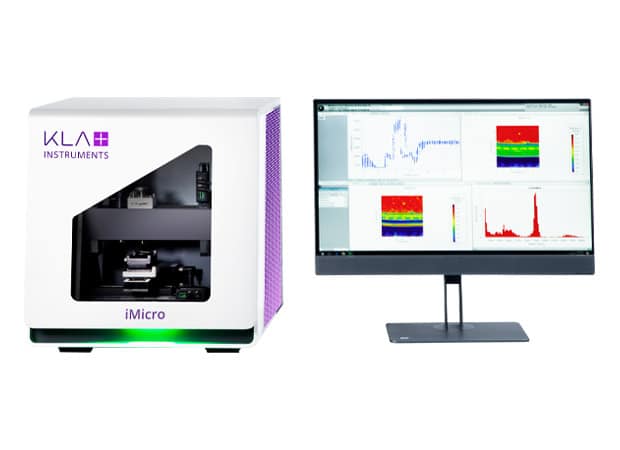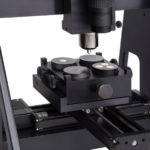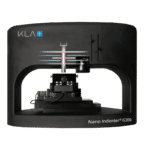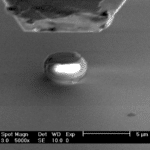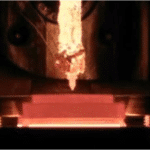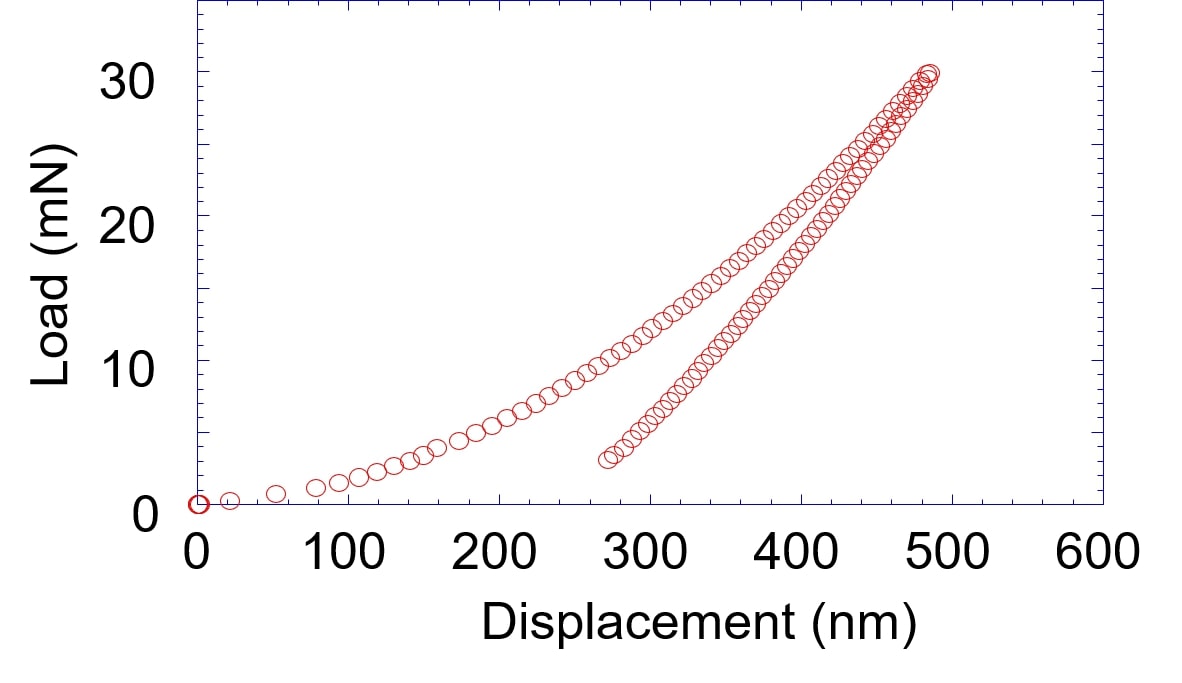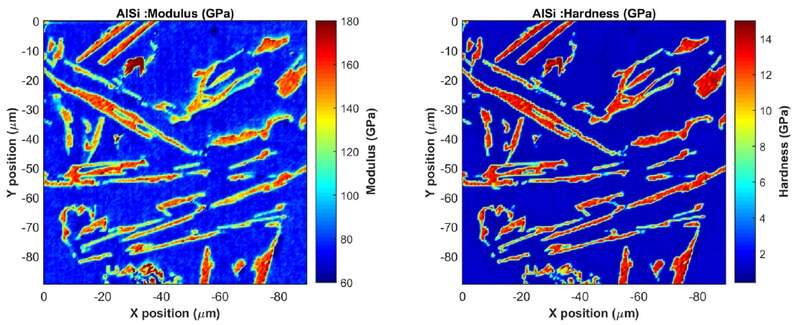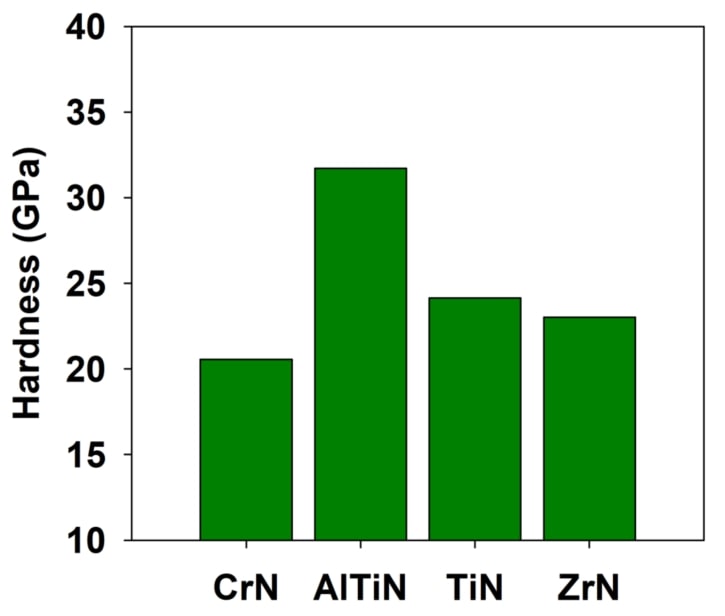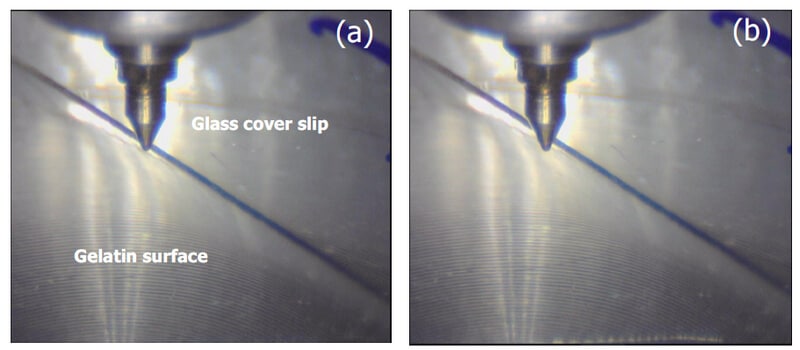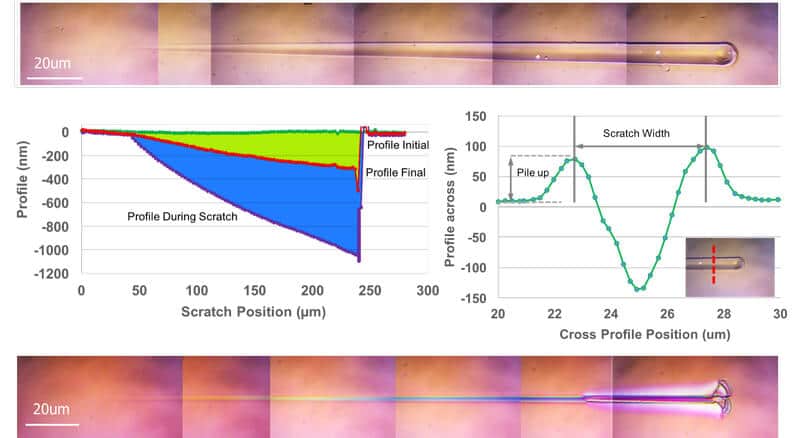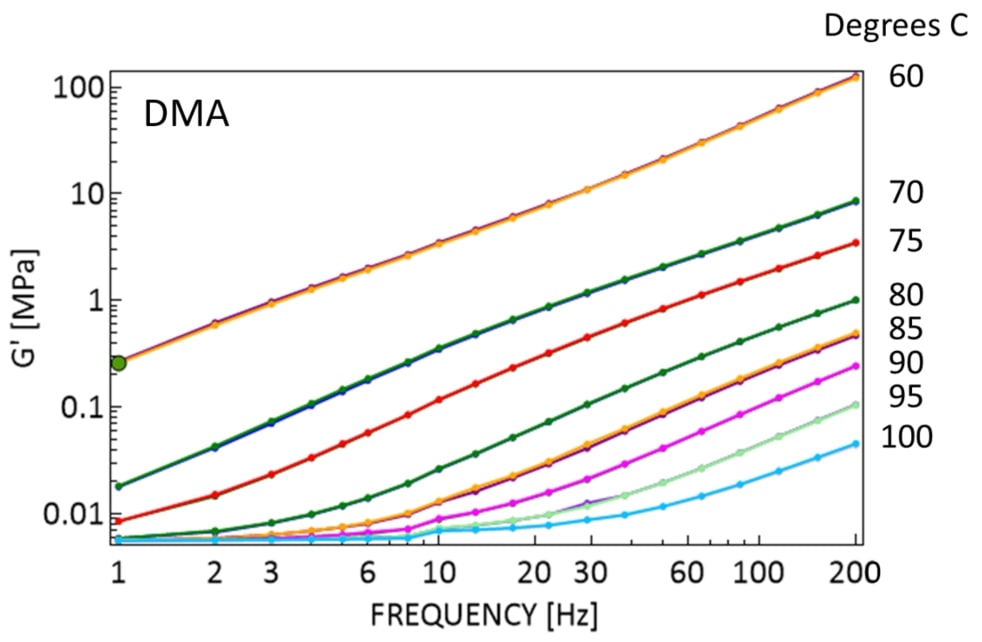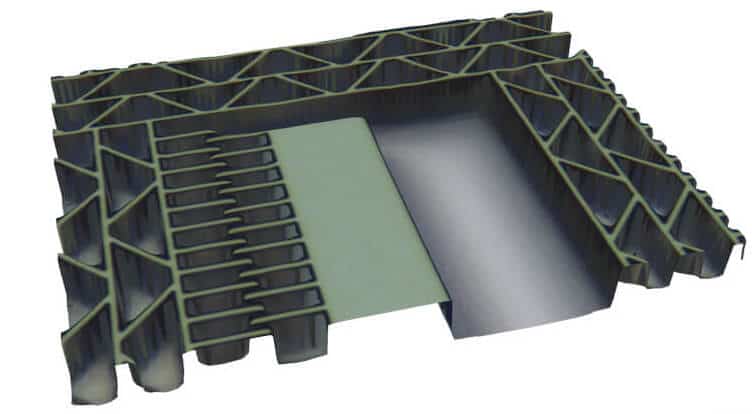Nanoindentación hasta 1 N de fuerza
La nanoindentación hecha sencilla!
iMicro
1. Preciso, flexible y fácil de usar
2. Amplia gama de pruebas nanomecánicas.
3. Materiales duros, altas cargas, gran profundidad.
(> 1N de fuerza)
El iMicro Nanoindenter es un instrumento preciso, flexible y fácil de usar que permite una amplia gama de pruebas nanomecánicas, que incluyen módulo y dureza (Oliver y Pharr, ISO 14577), módulo de almacenamiento y pérdida y pruebas universales. El iMicro puede ejercer hasta 1 N de fuerza para probar materiales duros, incluso a cargas más altas y a mayores profundidades. Se puede usar un actuador de fuerza opcional de 50mN para configurar el iMicro para probar materiales flexibles, y un actuador 2D opcional puede proporcionar mediciones tribológicas, fuerzas laterales y otras mediciones de investigación avanzadas que requieren la determinación de la fuerza / desplazamiento a lo largo de dos ejes.
Aplicaciones de nanoindentación
- Mediciones de dureza y módulo (Oliver-Pharr)
- Tarjetas de propiedad de hardware de alta velocidad
- Prueba de dureza ISO 14577
- Polímero Delta, módulo de almacenamiento y pérdida
- Pruebas cuantitativas de arañazos y desgaste
- Prueba de nanoindentación a alta temperatura
- Industrias
- Recubrimientos duros
- Obleas de semiconductores
- Cerámica y Vasos
- metales y aleaciones
- Baterías y almacenamiento de energía.
- Investigación y desarrollo
- Farmacia, alimentación y cuidado personal.
- Automotriz y aeroespacial
- Ensayos universales a nanoescala
- Recubrimientos duros
Más información sobre aplicaciones
- Adhesión
- Dureza
- Young module
- Rasguño
Nanoindentación con fuerza hasta 1N
El nanoindenter IMicro facilita la medición de recubrimientos duros, películas delgadas y pequeños volúmenes de material. El instrumento preciso, flexible y fácil de usar puede realizar una amplia gama de pruebas mecánicas a nanoescala, que incluyen muescas, durezas, arañazos y nanoscopios universales. Los actuadores intercambiables ofrecen una amplia gama dinámica de fuerzas y desplazamientos, lo que permite a los investigadores probar materiales que van desde polímeros blandos hasta metales duros, incluida la cerámica, con precisión y repetibilidad. Las opciones modulares se pueden adaptar a diversas aplicaciones: mapas de propiedades de materiales, pruebas de frecuencia, pruebas de arañazos y desgaste, y pruebas de alta temperatura. IMicro ofrece una gama completa de opciones para expandir las pruebas, que incluyen calentamiento de muestras, medición de rigidez continua, mapeo de propiedades NanoBlitz3D / 4D y el transductor de fuerza Gemini 2D, que permite tribología y otras mediciones con dos ejes.
El iMicro está equipado con el actuador InForce 1000 que permite realizar pruebas de nanoindentación y nanomecánicas universales. También es posible agregar el actuador InForce 50 para probar materiales más blandos. El software InView es un paquete de software flexible y moderno que facilita las pruebas a nanoescala. El iMicro es una plataforma compacta con un controlador InQuest de alta velocidad y un pórtico de aislamiento de vibraciones integrado en la carcasa. Se puede probar una amplia gama de materiales y dispositivos, incluidos metales, cerámicas, compuestos, películas delgadas, recubrimientos, polímeros, biomateriales y geles.
VENTAJAS
- Preciso, flexible y fácil de usar
- Amplia gama de pruebas nanomecánicas.
- Materiales duros, altas cargas, gran profundidad.
(> 1N de fuerza)
- Actuador InForce 1000 para medición de desplazamiento capacitivo y actuación de fuerza electromagnética con puntas intercambiables
- El actuador InForce 50 opcional proporciona una fuerza normal máxima de 50 mN para la medición de materiales flexibles y un sensor de fuerza Gemini 2D opcional para la medición dinámica de dos ejes. Sistema de calibración de punta único integrado en el software para una calibración de punta rápida y precisa
- Controlador electrónico de alta velocidad InQuest con velocidad de adquisición de datos de 100 kHz y constante de tiempo de 20 µs
- Sistema de movimiento XY con soporte de muestra magnético de fácil montaje
- Marco de alta rigidez con aislamiento antivibraciones integrado.
- Microscopio integrado con zoom digital para una orientación precisa de la indentacion
- ISO 14577 y métodos de prueba estándar
- Paquete de software InView con RunTest, ReviewData, informes
- InFocus, capacitación en línea de InView University y aplicación móvil InView
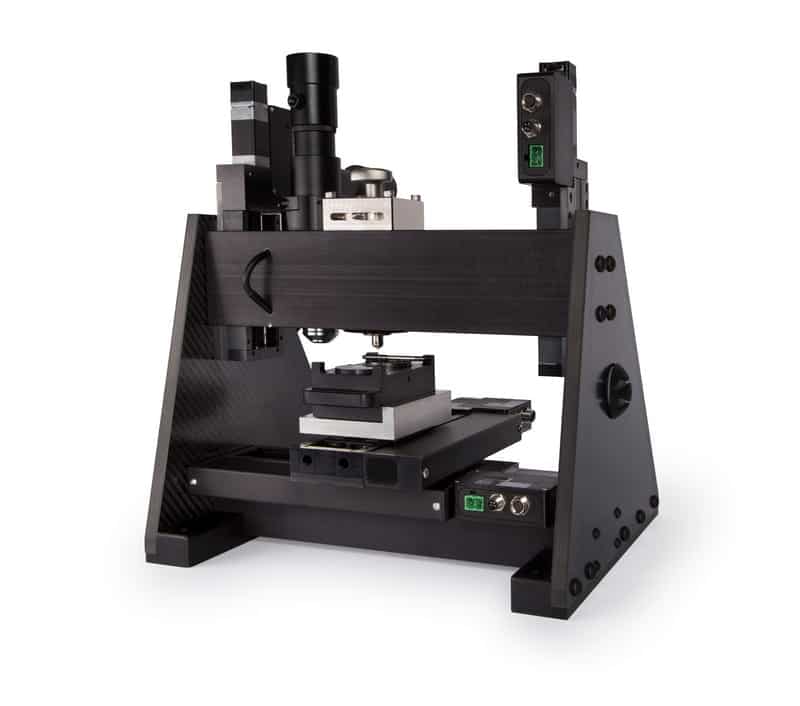
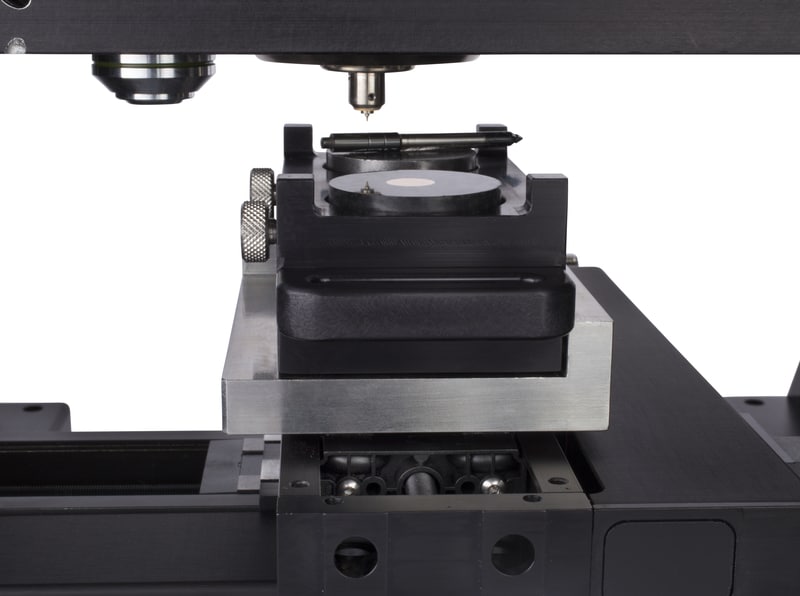
Options
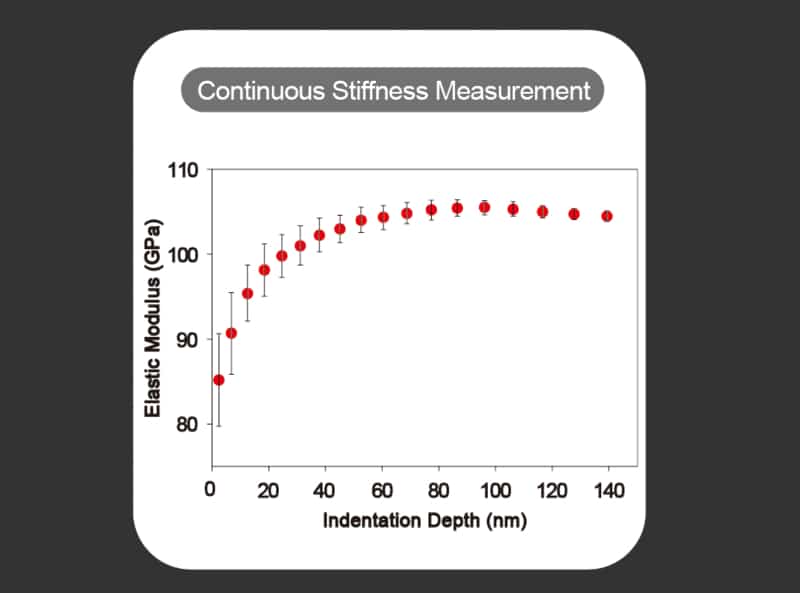
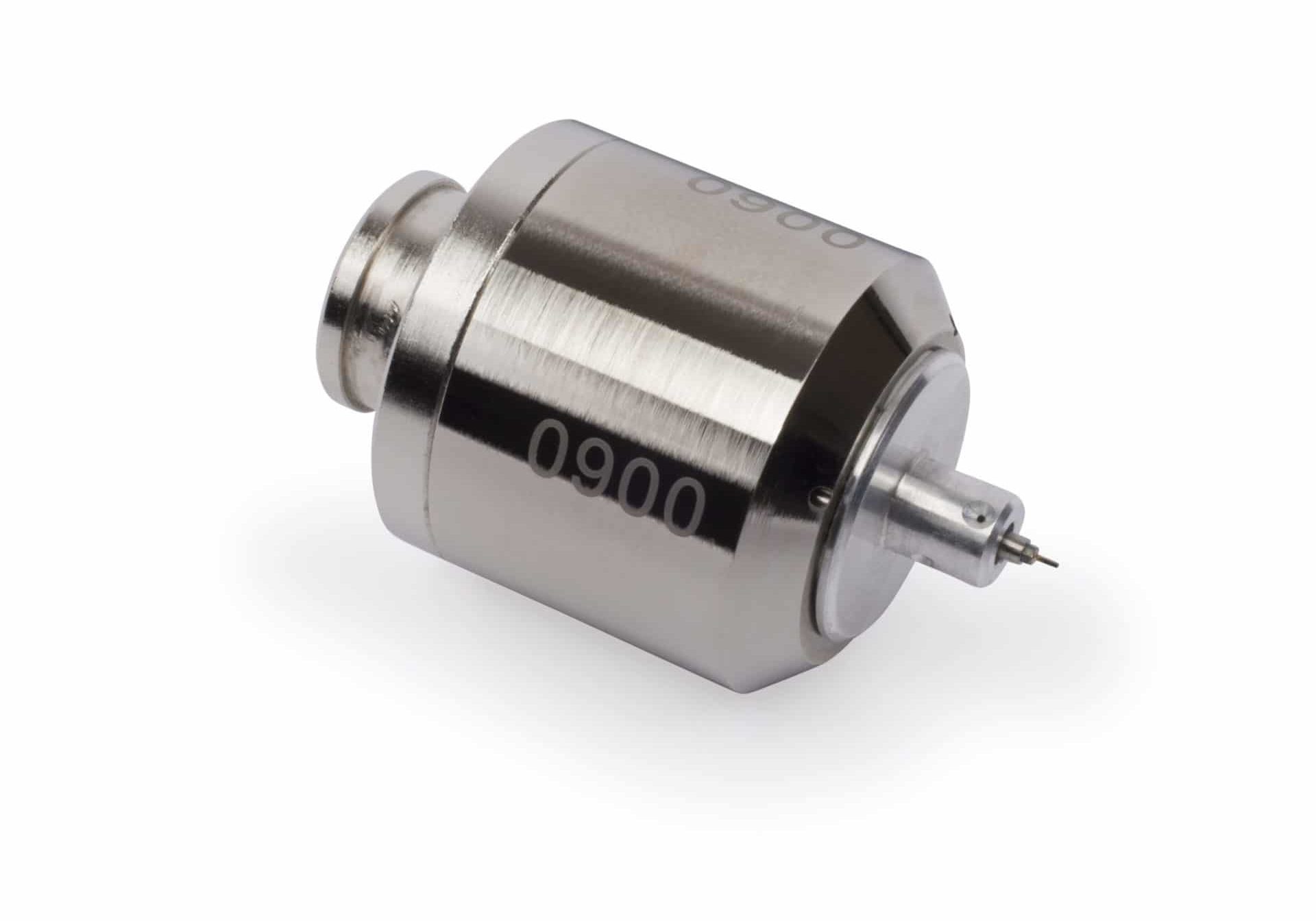
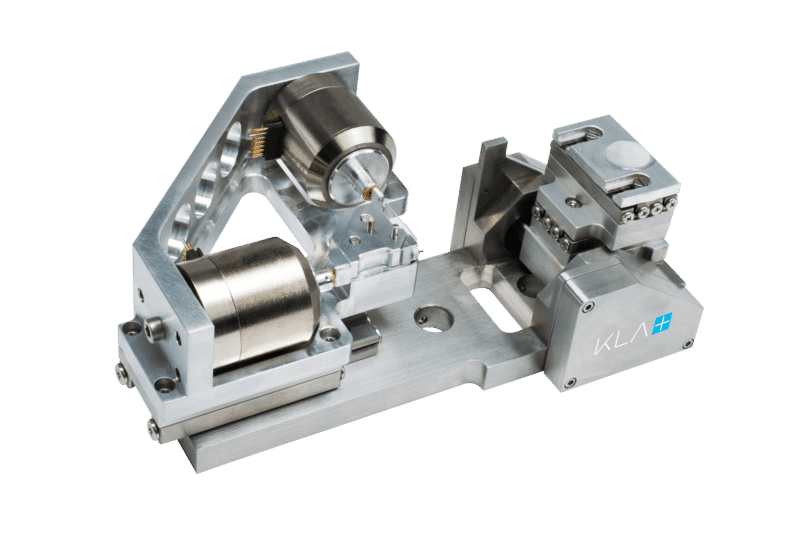
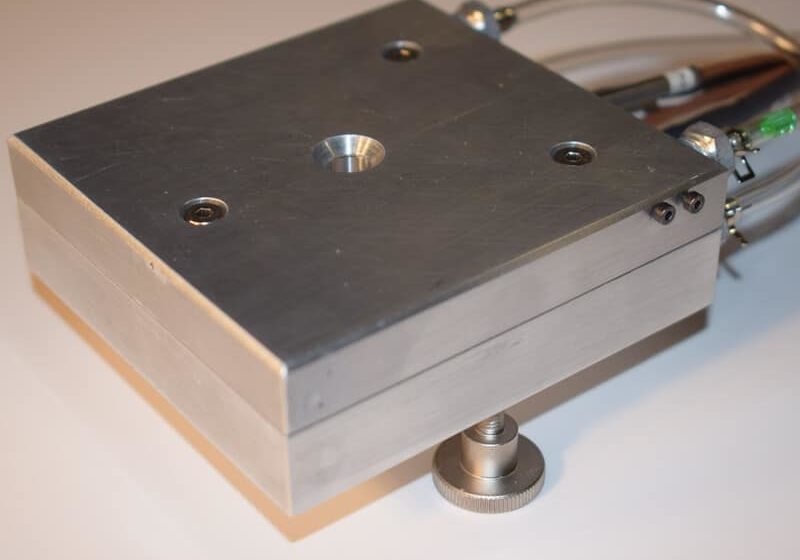
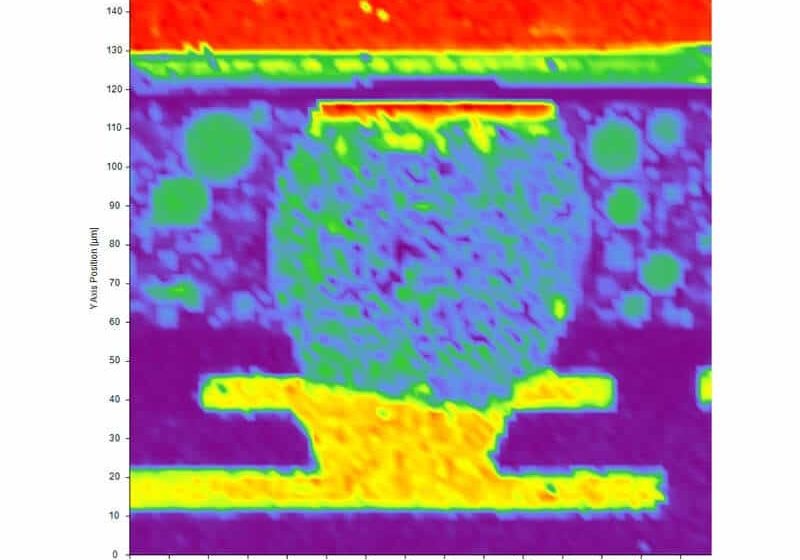
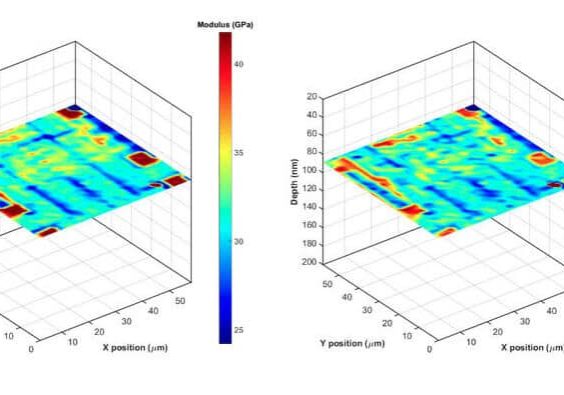
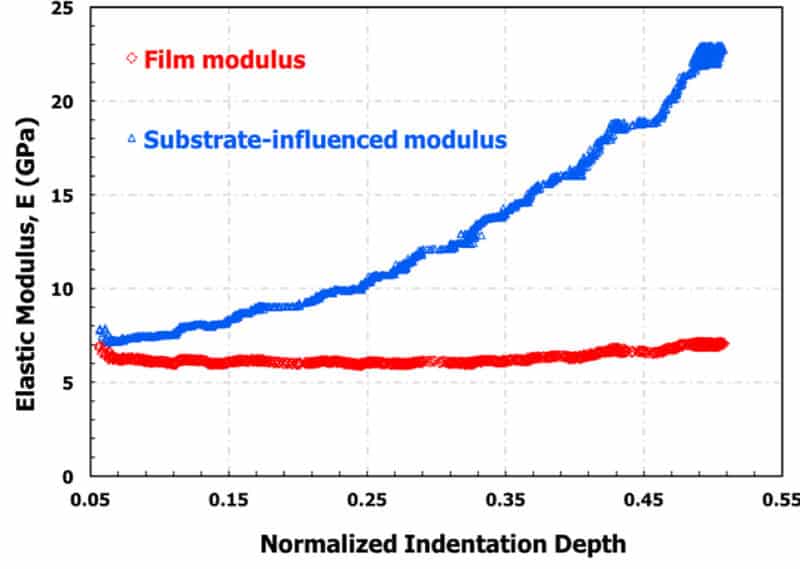
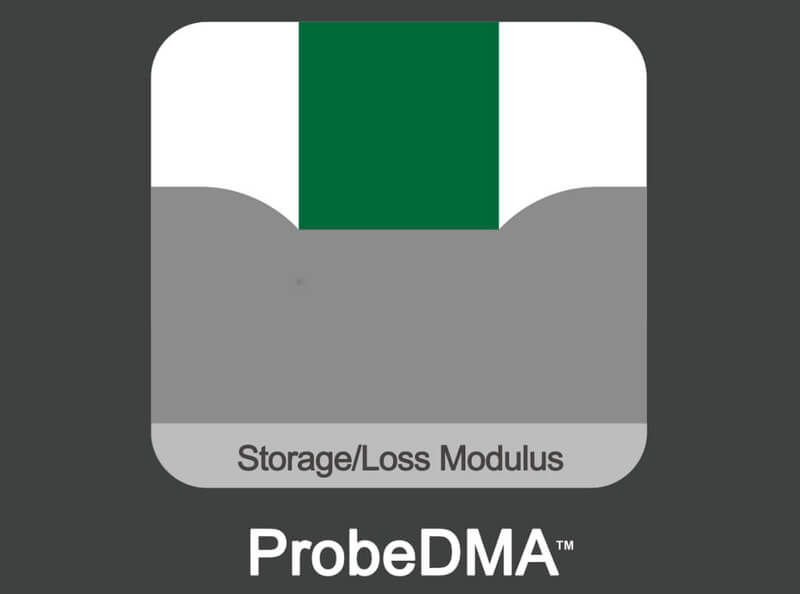
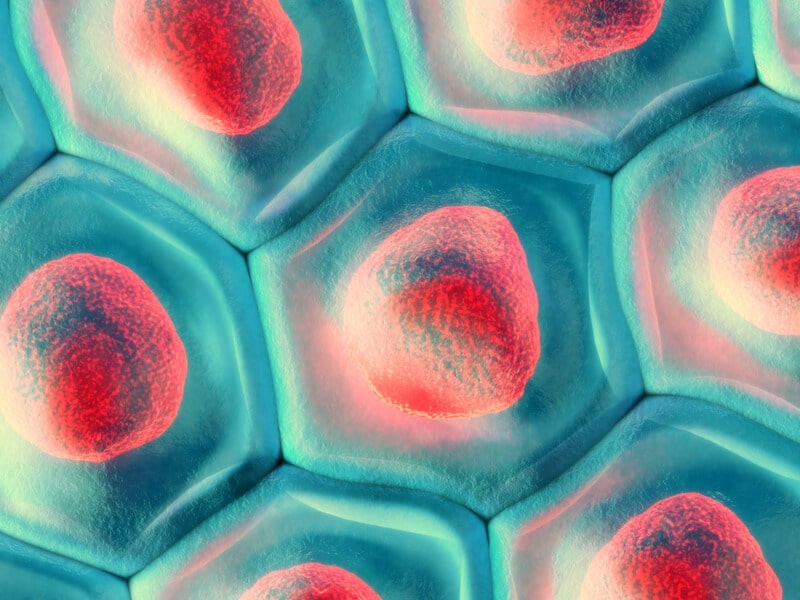
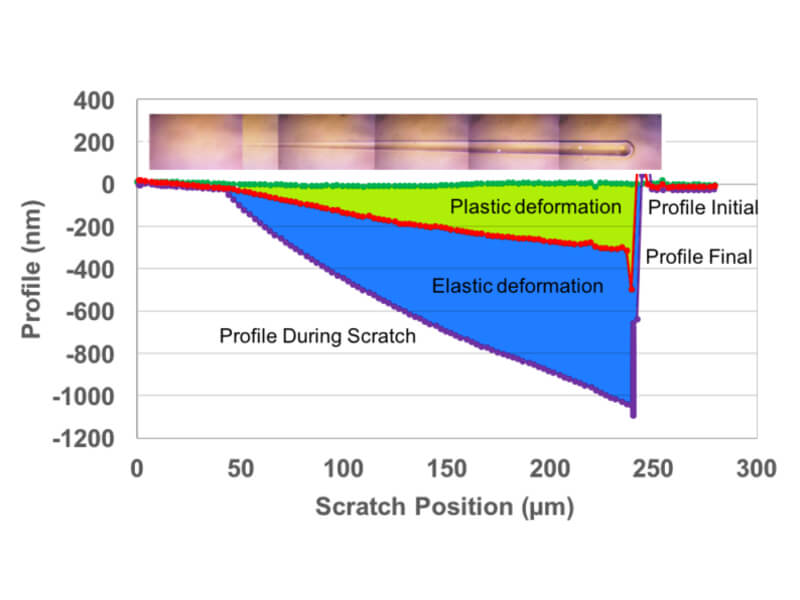

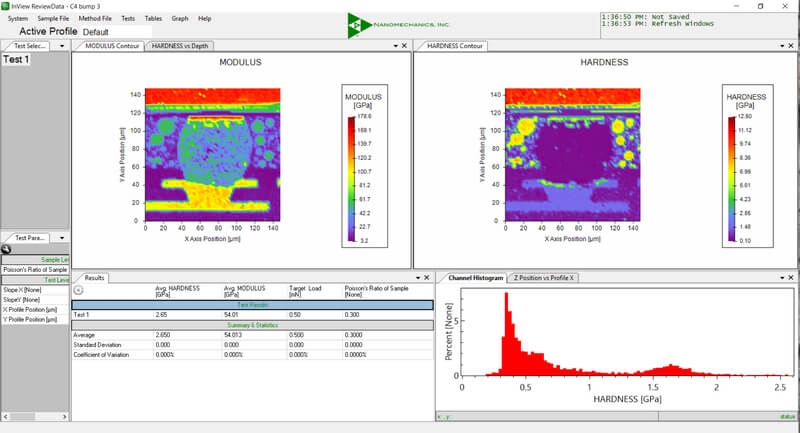
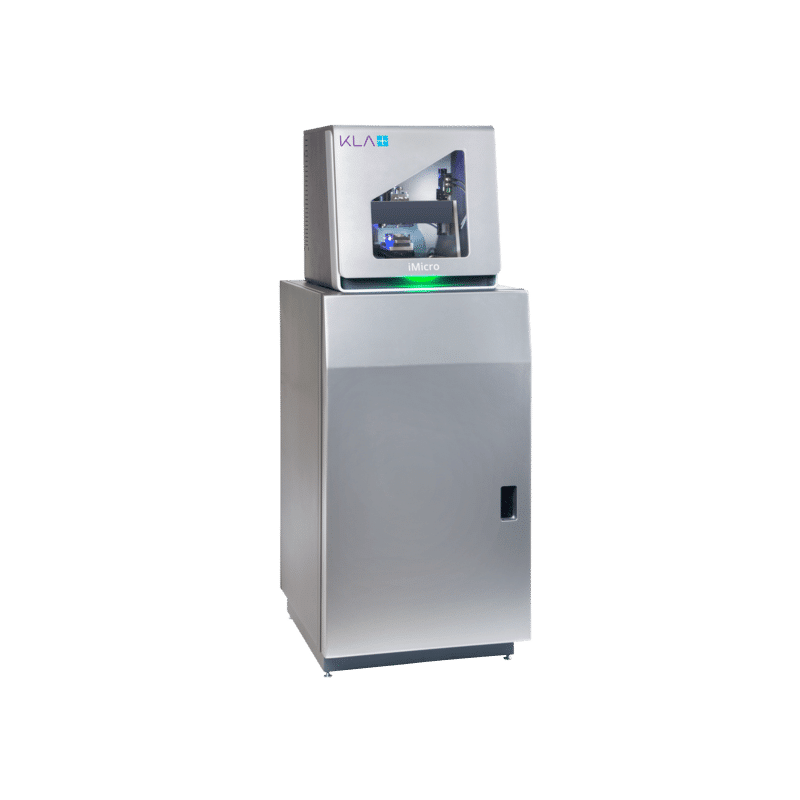
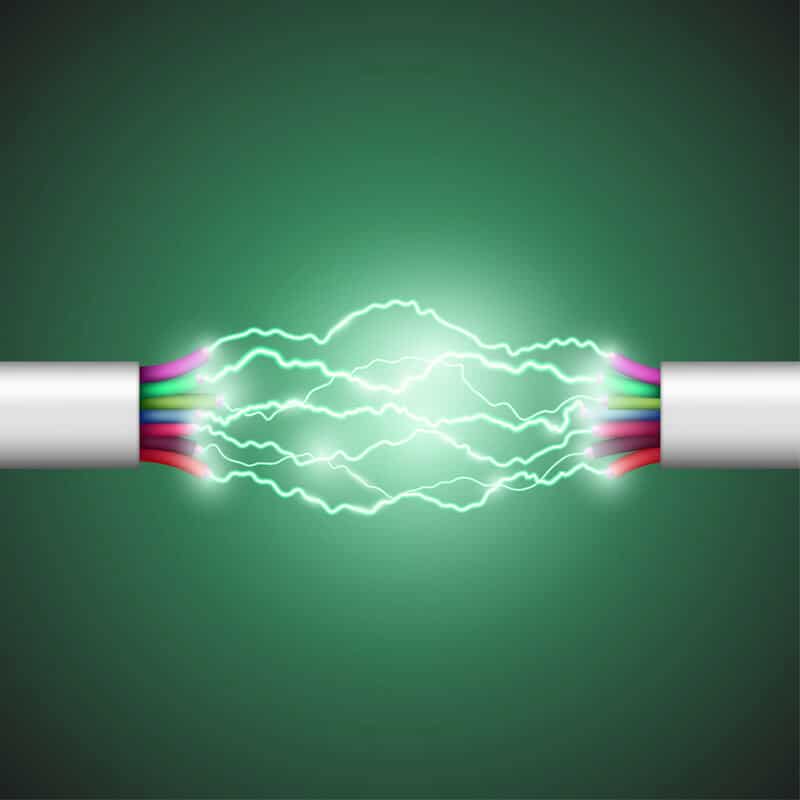


Continuous stiffness measurement (CSM)
Continuous stiffness measurement is used to quantify the dynamic properties of the material, such as the rate of deformation and the effects induced by frequency. The CSM technique involves oscillation of the probe during indentation to measure properties as a function of depth, force, time or frequency. The option comes with a constant stress rate experience that measures hardness and modulus as a function of depth or load, the most common test method used in universities and industry. CSM is also used for other advanced measurement options, including the ProbeDMA ™ method for storage and loss module measurements and AccuFilm ™ measurements independent of the substrate. The CSM is integrated with the InQuest controller and InView software to provide ease of use and data quality.
InForce 50 actuator
The InForce 50 actuator performs nanomechanical tests with forces up to 50 mN. The patented application of electromagnetic force guarantees robust measurements as well as long-term stability of force and displacement. State-of-the-art mechanical design ensures that harmonic movement is constrained to a degree of freedom, so that force and displacement are controlled along a single axis. The InForce 50 actuator is compatible with the CSM, NanoBlitz, ProbeDMA, biomaterials, sample heating, scratches, wear and ISO 14577 test options. The tips are interchangeable between the full range of InForce actuators and Gemini.
Gemini two-axis actuator
Gemini's two-axis technology brings standard indentation performance to a second lateral axis, with the CSM operating simultaneously on both axes. The additional information provided by this patented technique allows a better understanding of the properties of materials and the failure mechanisms. The two-dimensional transducer is necessary for lateral force and tribology measurements and is used to measure the Poisson's ratio, the friction coefficient, scratches, wear, shear and topology.
The sample heating option at 300 ° C allows the sample to be placed in a chamber for uniform heating while undergoing simultaneous testing with the InForce 1000 or InForce 50 actuators. The option includes a high temperature control precision, filling with inert gas to reduce oxidation and cooling to eliminate waste heat. ProbeDMA, AccuFilm, NanoBlitz and CSM are all compatible with the sample heating option.
NanoBlitz 3D
NanoBlitz 3D uses the InForce 50 or InForce 1000 actuator and a Berkovich tip to generate 3D maps of nanomechanical properties for high E factor materials (> 3GPa). NanoBlitz performs up to 100,000 withdrawals (300x300 matrix) at <1 second per withdrawal and provides Young's modulus (E), hardness (H) and stiffness (S) values at a specified load for each withdrawal from the network . The large number of tests allows increased statistical precision. The histogram graphs show several phases or materials. The NanoBlitz 3D package includes visualization and data processing functionalities.
NanoBlitz 4D
NanoBlitz 4D uses the InForce 50 or InForce 1000 actuator and a Berkovich tip to generate 4D maps of the nanomechanical properties of low W / O and high E materials (> 3GPa). NanoBlitz performs up to 10,000 withdrawals (30x30 matrix) every 5 to 10 seconds and provides Young's modulus (E), hardness (H) and stiffness (S) values as a function of the depth of each withdrawal in the matrix. NanoBlitz 4D uses a constant strain rate method. The package includes visualization and data processing functionalities.
AccuFilm is an InView test method based on the Hay-Crawford model to measure the properties of materials independent of the substrate using continuous stiffness measurement (CSM). AccuFilm corrects the influence of the substrate on the film measurements for hard films on soft substrates, as well as for soft films on hard substrates.
Biomaterials Method Pack
The Biomaterials Method Pack offers the possibility of measuring the complex module of biomaterials with shear modules of the order of 1 kPa, and uses continuous stiffness measurement (CSM). The pack includes a flat tip and a test method to assess the viscoelastic properties. This measurement technique is essential for characterizing small-scale biomaterials that are not well served by traditional rheometric instruments.
Survey Scanning
The Biomaterials Method Pack offers the possibility of measuring the complex module of biomaterials with shear modules of the order of 1 kPa, and uses continuous stiffness measurement (CSM). The pack includes a flat tip and a test method to assess the viscoelastic properties. This measurement technique is essential for characterizing small-scale biomaterials that are not well served by traditional rheometric instruments.
Scratch and wear test method
The scratch test involves applying a constant or ramped load to an indenter while crossing the surface of the sample at a specified speed. Scratch tests make it possible to characterize many materials such as thin films, fragile ceramics and polymers.
DataBurst
DataBurst allows systems with InView software and the InQuest controller to record displacement data at speeds> 1 kHz for the measurement of strain loads, jumps and other high-speed events. IMicro systems with the user method development option can also modify the methods for working with DataBurst.
Development of user methods for InView control software
InView is a powerful and intuitive platform for experiential scripting that can be used to design new or complex experiments. Experienced users can configure and perform virtually any small-scale mechanical test using the iMicro system equipped with the exclusive InView option.
True Test I-V Electrical measurements
Controlled via InView software, the True Test I-V option for the iMicro nanoindentor uses a precision ammeter and a voltage source, an electrical path crossing the tip and a conductive tip. This design allows the user to apply specific voltages to a sample and measure the tip current while simultaneously actuating the InForce 50 or InForce 1000 actuator.
Linear optical encoders
The iMicro's linear optical encoder (LOE) option is integrated into the X and Y motion steps and increases positioning accuracy and the throughput of the test process.
Indentation tips and calibration samples
The InForce 50, InForce 1000 and Gemini actuators use interchangeable tips. A wide variety of vivid penetrations are available, such as Berkovich, cube corner and Vickers, as well as flat punches, sphere punches and other geometries. Standard reference materials and calibration standards are also available for the entire product range.
Contáctenos para más información sobre este producto
¿Quieres una estimación?
¿Información Adicional?
Le responderemos dentro de las 24 horas.




